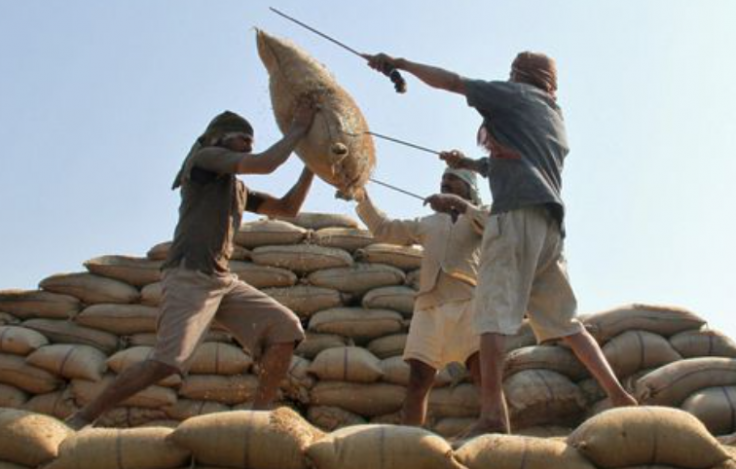The rice export ban that India has imposed will result in a surge in global food price inflation, the International Monetary Fund (IMF) has warned. Along with the suspension of the Ukraine Black Sea grain deal, the Indian rice export ban will cause a 10-15 percent hike in global grain prices, IMF chief economist Pierre-Olivier Gourinchas said on Tuesday.
"In the current environment, these types of restrictions are likely to exacerbate volatility on food prices in the rest of the world, and they can also lead to retaliatory measures ... We would encourage the removal of these type of export restrictions because they can be they can be harmful globally," the IMF official said, according to Reuters.

Exports to 140 Countries
India is a key player in the global grains market, and accounts for a whopping 40 percent of the global rice trade. India, the world's largest rice exporter, sends rice shipments to as many as 140 countries.
India said last week it was suspending the export of rice as it wants to contain the price hike in the domestic market. The government said on Thursday that domestic rice prices rose 11.5 percent over the past year, necessitating the export ban. India's Ministry of Consumer Affairs said the ban was needed to ensure "adequate availability of non-basmati white rice in the Indian market and to allay the rise in prices in the domestic market."
Double Whammy
India's rice export ban has come as a double whammy after Russia suspended its participation in the grain export deal that ensured Ukraine could send shipments safely through the Black Sea. The Russian move hours after a blast knocked out Russia's bridge to Crimea in what Moscow called a strike by Ukrainian sea drones.
Although India has sufficient stockpiles of rice, the authorities fear that erratic monsoon could cause an output fall this year, even as the central government readies for elections in several key states. The Indian export ban, which is unlikely to be reversed any time soon, will remove at least 10 million tonnes of rice from the global market, the Reuters reported.

According to the report, the ban impacts non-basmati white and broken rice, which accounts for around 10 million tons. India exported about 22.5 million tons last year. The current ban means at least 10 million tons of Indian rice, which is about 40 percent of the country's rice exports, will be knocked out.
Global Food Costs
The rice export ban will worsen the prospects of a pickup in global food costs, as it comes on the heels of a spike in the prices of wheat, corn and other agricultural commodities. "There is considerably more reason for concern now that rice prices in Asia could spiral out of control pretty quickly," said Peter Timmer, Professor Emeritus at Harvard University, according to Bloomberg.
While rice is the staple diet of billions of people in Asia and Africa, the El Niño weather pattern and extremely high temperatures are threatening farm supplies in Europe. The Indian rice ban is expected to immediately affect supplies in Nepal, Bangladesh, China, Malaysia, the Philippines, Indonesia, and several African nations.
"India would disrupt the global rice market with far greater velocity than Ukraine did in the wheat market with Russia's invasion," B.V. Krishna Rao, president of the Rice Exporters Association, said, according to Reuters.








